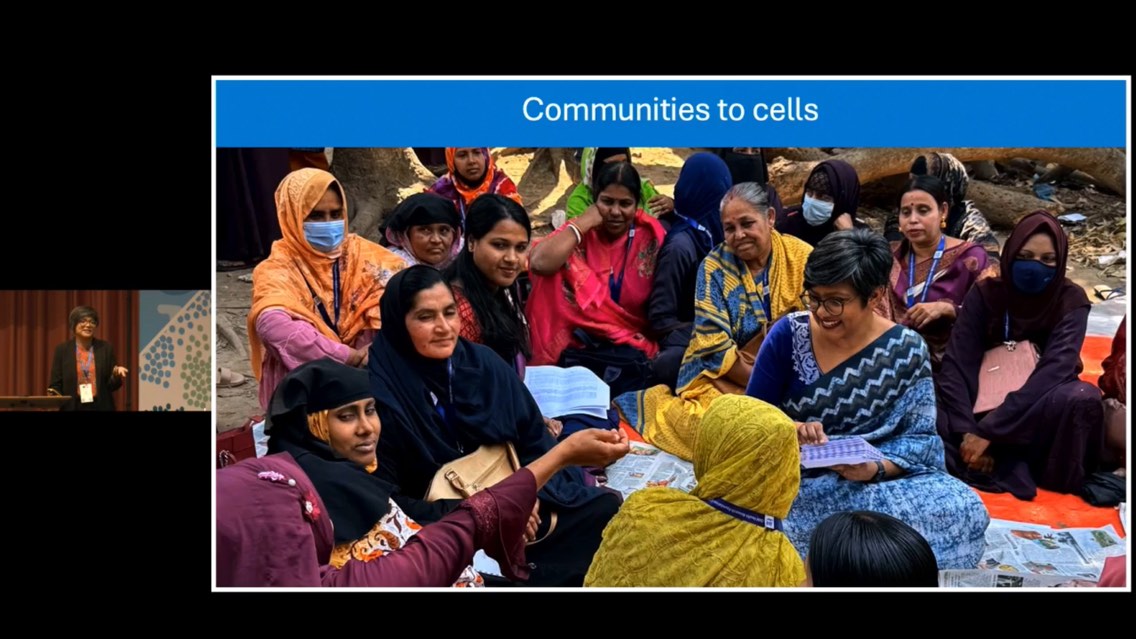.png)
Experts from around the world gathered to discuss revolutionary advancements in single-cell genomics at the Human Cell Atlas (HCA) General Meeting 2024, hosted in Milan. Dr. Senjuti Saha, Deputy Executive Director of CHRF, delivered a powerful presentation focused on the single-cell research study being conducted in Bangladesh and its potential to revolutionize public health, particularly for children.
Dr. Senjuti Saha shared that researchers at CHRF are examining the nasal mucosa of children to understand how cells differ in those who are healthy versus those suffering from infections caused by viruses such as Respiratory Syncytial Virus (RSV). Studying both the host and pathogen through the lens of single-cell genomics can help answer key questions about why some children are more susceptible to RSV than others, whether the severity can be predicted and could biomarkers be discovered to help in the prediction.
Dr. Saha updated the HCA community the progress of the study being conducted in the rural area of Mirzapur, Bangladesh, and highlighted the importance of community engagement. Community health surveillance in Mirzapur allows all pregnancies and births to be recorded and tracked. Community health workers visit families weekly, and sick children are referred to our network hospitals, allowing us to link community data with clinical data. The study currently being conducted would not be possible without the leadership of the incredible team of women community health workers, and the mothers who are dedicated to contributing to science to build a healthier Bangladesh.
Following her presentation, Dr. Saha participated in a panel discussion alongside four other experts, where they explored the broader implications of single-cell genomics studies, locally and globally. She shared that researchers at CHRF are conducting another single-cell study investigating the impact of gestational age on vaccine responses. Using single-cell RNA sequencing, the team is examining how immune cells behave in infants of different developmental stages, both premature and full-term. Understanding these differences will provide insights into tailoring effective vaccination programs, studying nasal mucosa development, and assessing pollution levels linked to respiratory diseases.
Despite challenges like limited access to local contributors, expensive reagents, restricted computing resources, and delays in receiving essential supplies, Dr. Saha emphasizes how single-cell genomics can unlock vast opportunities for contributing to global science and improving public health. By empowering, engaging and educating local scientists, we can make significant contribution in the Human Cell Atlas and CHRF stands committed to advance towards this aim.

